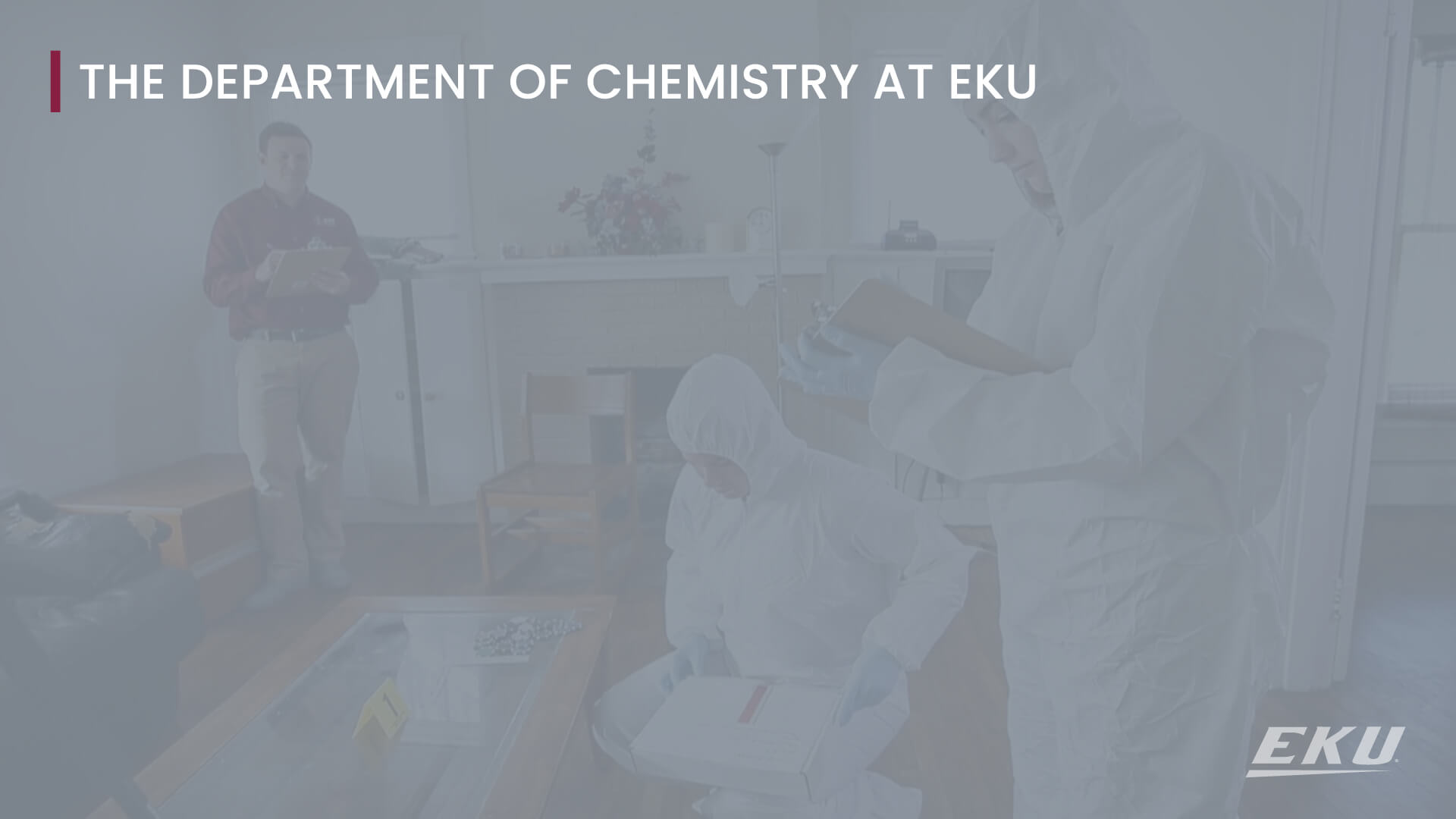
Department of Chemistry & Forensic Science
College of Science, Technology, Engineering & Mathematics
Department of Chemistry & Forensic Science
College of Science, Technology, Engineering & Mathematics
Tackle the World’s Biggest Problems and Improve Everyday Life
Chemistry is central to our everyday existence
The department of chemistry is housed in the state-of-the-art Science Building. Our teaching, laboratory, and research spaces provide students with the ability to learn how to work with equipment and instruments commonly used in chemical research and industry. Students who wish to become involved in research will find our faculty eager to work with them and help them enter the field of professional chemistry or prepare them for graduate education.
Learn More
Department of Chemistry Degrees & Certificates
Undergraduate Programs
Why Study Chemistry at EKU?
The applied nature of chemistry means there is a great need of hands-on experience in the lab. Our facilities and instrumentation meet that need for our students. When combined with the numerous research opportunities within the department, chemistry education at EKU is among the best in the Commonwealth.
Research Opportunities
Students can receive hands-on experience with state-of-the-art facilities and chemical instrumentation while receiving credit towards their chemistry degree, elective, or ACCT credit by working with chemistry and forensic faculty on independent research projects. Individual faculty have diverse research projects currently underway in the department.
Students who want to perform an independent research project with a chemistry faculty mentor should contact the department to learn what type of research courses are available and the process for starting a research project.
Facilities & Instrumentation
The department of chemistry, which houses the forensic science program, is well equipped with state-of-the-art instrumentation. The instrumentation is housed in a centralized instrumentation room and is used for teaching and chemical research.
If you have collaborative needs to use our equipment, please contact Instrument Specialist Tracy Gastineau-Stevens to schedule an appointment for training and discuss consumables if applicable.
Student Stories & Features
Quick Links
Upcoming Events
| March 2025 | ||||||
|---|---|---|---|---|---|---|
| Mo | Tu | We | Th | Fr | Sa | Su |
| 24 | 25 | 26 | 27 | 28 | 1 | 2 |
| 3 | 4 | 5 | 6 | 7 | 8 | 9 |
| 10 | 11 | 12 | 13 | 14 | 15 | 16 |
| 17 | 18 | 19 | 20 | 21 | 22 | 23 |
| 24 | 25 | 26 | 27 | 28 | 29 | 30 |
| 31 | 1 | 2 | 3 | 4 | 5 | 6 |
Spring Break
Residence Halls Open
Grad Fest Spring 2025
News & Updates
Students Take Their Research to Harvard, Representing EKU at the National Level
EKU’s Classroom in a Box Initiative Supports First-Year Teachers
Bringing Healthcare Back Home
Contact Information
Department of Chemistry & Forensic Science
Science Building
Room 4126
533 John Hanlon Drive
Richmond, KY 40475
859-622-1456
Fax: 859-622-8197




